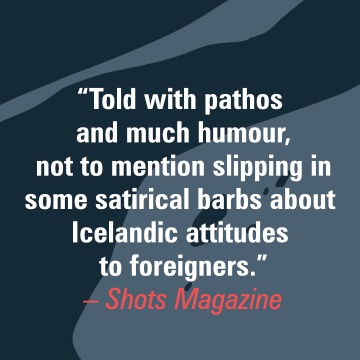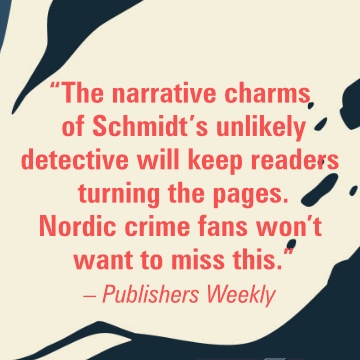Our film noir correspondent Dennis Broe reveals a darker side of Asia as he reports on the best crime movies to emerge at this year’s Cannes Film Festival

While some would argue that the main crime at Cannes this year was the refusal to allow Netflix a place in the main competition – effectively excluding Martin Scorsese’s Jimmy Hoffa assassination film The Irishman – the festival did honour the Korean movie Parasite with the Palme d’Or. The film was directed by Boon Joon Ho, whose last movie to appear at the festival, Okja, was booed because the Netflix logo appeared in the titles.
Parasite isn’t strictly speaking a crime film, but is worth checking out. It begins as a comedy highlighting the class differences between two families in Seoul. One lives in a basement stealing their neighbours’ WiFi signal, the other in a gated mansion with verdant lawns and no neighbours to be seen. However, Parasite does veer dark and vengeful in its final acts, with its sudden twist highlighting the dominant role Asian crime films played at Cannes this year. Three of our top five crime movies originated in Asia, revealing unpleasant truths about their societies while often boasting protagonists who manage to remain untainted, rising above the sea of chaos and violence around them.
5 – Oleg
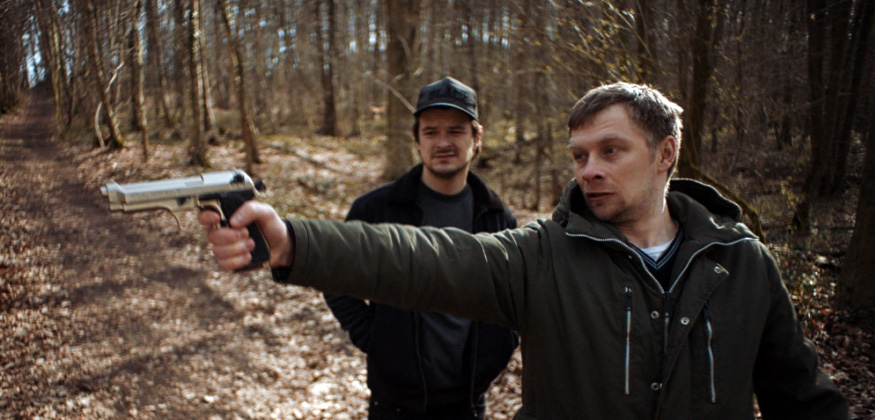
This Latvian-Belgian co-production traces the trajectory of the lead character of the title, a Latvian émigré in Brussels and a butcher by trade. There he unjustly loses his job and falls into the clutches of a Polish gangster in what amounts to a kind of Eastern European male trafficking to go along with the more widely publicised trafficking of women. Oleg suffers much at the hands of his psychopathic supposed benefactor and he and the film are saved by his innate goodness and devotion to his trade, which in other circles – think Charles Burnett’s Killer of Sheep – might be seen as repulsive. His desperate struggle to escape the criminal life is reminiscent of the in-the-end moralistic Nicholas Cage character in the 90s noir Red Rock West and it is this compass, and his professed desire to help his grandmother in Latvia, that steers Oleg away from the more material West and back toward his homeland. The film is only marred by its refusal to have a final confrontation between Oleg and his persecutor, though its denouement does instead suggest the pain of a woman who is unable to get out from under a life which in visual terms is described as drowning the young Latvian.
4 – The Traitor
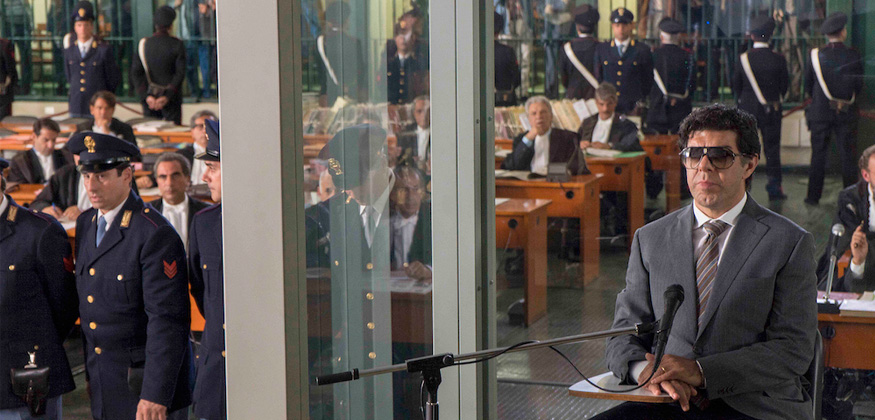
This may be famed Italian director Marco Bellochio’s best film. It is certainly his most social with perhaps the only past precedent being his exposé of Mussolini’s inner corruption in Vincere. The Traitor focuses on a detailed account of the inner workings of the Cosa Nostra, which he shares with the later assassinated Judge Falcone. What the informer has witnessed he considers to be a betrayal of the organisation’s original mission, with their random killings and drug trafficking. The first part features Godfather-style executions and doesn’t stint on the bloodletting. The second part – by far the most interesting – is the confrontation of the Sicilian mob in a court in Rome where they challenge the state’s authority, while also suggesting through their business interests they have infiltrated the state. The mob members strip nude, hoot, and threaten the informer from their cells in the courtroom as he calmly accuses them, at one point interrupted by a mobster’s epileptic seizure. The third part is the informer’s life in witness protection as he grows increasingly more isolated from his family in his solitary quest for justice. However, a flashback in the coda distances him from us and keeps us from seeing him as heroic, returning him instead to the violent milieu from which he sprang. The clichéd gangster/mafia film is dispensed with after the opening act and the rest of the film is a unique take on the genre.
3 – Wild Goose Lake
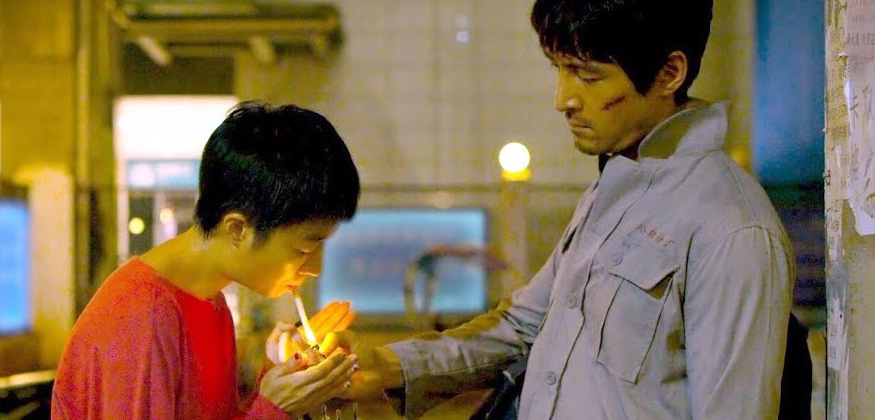
Director Diao Yian’s previous film was the resplendent Black Coal/Thin Ice, which used the outmoded serial killer trope to describe the bleakness of life in a remote Chinese mining region near Mongolia. Yian’s current entry is more classic noir. It begins on a shadowy street at night with what we learn is a gangster, hounded both by the law and another gang, being asked by a beautiful girl in a red dress for a light. The film, like Yian’s previous outing, then employs these clichés as a device to describe a rural region in central China where cops and the criminal gang that steals motorcycles look and act almost exactly alike and are frequently compared in their search for the lone fugitive in a way that recalls Fritz Lang’s M. Like any noir, Wild Goose Lake features a series of betrayals of the gang with each other, of the man and woman, and of the man and his former wife, but again these betrayals are seen as necessary to survive in a materialist society. Like Oleg, our doomed protagonist makes a moral decision that allows him to make up for past transgressions and demonstrates his humanity in the face of overwhelming odds.
2 – First Love
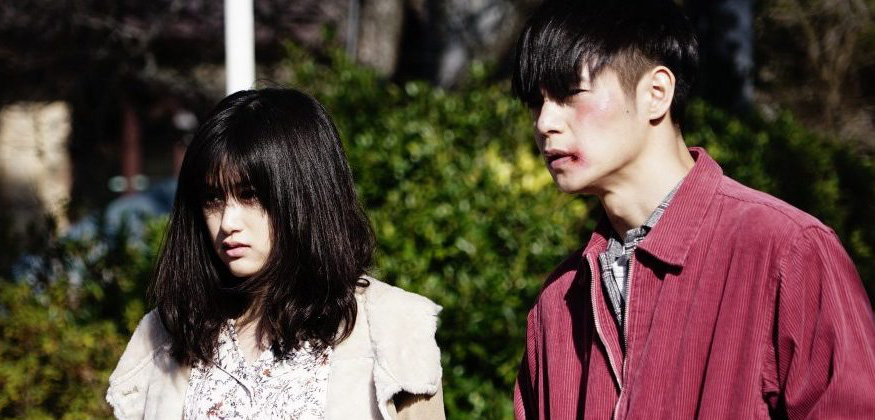
Japanese director Takashi Miike has certainly demonstrated his prowess with the sword and predilection for orchestrated mayhem in samurai films such as Blade of the Immortal and 13 Assassins. This tale – of a liaison between a young boxer and a cocaine-addled prostitute pursued by a yakuza seeking redemption and blamed for a robbery orchestrated by a homicidal underling and a corrupt cop – has all the markings of a paint-by-the-numbers romp. Except that it’s not. First Love is lifted firstly by Miike’s patented frenetic action sequences – in one a wind-up cat sets an apartment on fire and a gangster’s moll is thrown through the window as the room explodes – and secondly by its two female assassins. One is the aforementioned moll who is hell-bent on revenge, the other a Lady Vengeance-type killer who we first see tranquilly enjoyed a meal in a noodle restaurant. The real saving grace, however, is the relationship between the two leads. Both are entangled in a hellish nightmare, the girl’s induced by her predatory father. They find each other and escape through what Miike defines as their innate innocence. First love provides a new spin on these tried and true tropes, which isn’t easy, as illustrated by the festival failure The Cop, The Gangster, The Devil, from Korea.
1 – Nina Wu

“Torture the woman,” Hitchcock proclaimed was the key to his films and Nina Wu, with screenplay co-authored by its director Midi Z and lead actress Wu Ke-xi, illustrates that dictum but from the point of view of a tortured Taiwanese actress. In the age of #MeToo this is Harvey Weinstein meets Mulholland Drive. The ingénue actress is humiliated in her film audition, almost killed on the set in order to get her to properly emote in the last scene of the film, and witnesses her dog – named Oscar in a nod to her industry ambitions – being annihilated. The film uses fantasy sequences to depict the schizophrenia this treatment induces but ends with the sexual manipulation that is the ultimate key to a madness brought on by the industry’s patriarchy. The film references Uma Thurman, who complained of rough treatment by Quentin Tarantino in Kill Bill. However, Tarantino was in the Cannes audience, coming to support Nina Wu’s Taiwanese director. The fractured narrative recalls David Lynch and as in Mulholland Drive it is fractured for a purpose, to show the psychic breakup of the actress who only in the end acknowledges the crime that has driven her mad. A psychic mystery and a powerful indictment of the film industry.
Dennis Broe is the author of Birth of the Binge: Serial TV and The End of Leisure as well as two books – Film Noir, American Workers and Postwar Hollywood and Class, Crime and International Film Noir – and numerous articles on the crime film.






